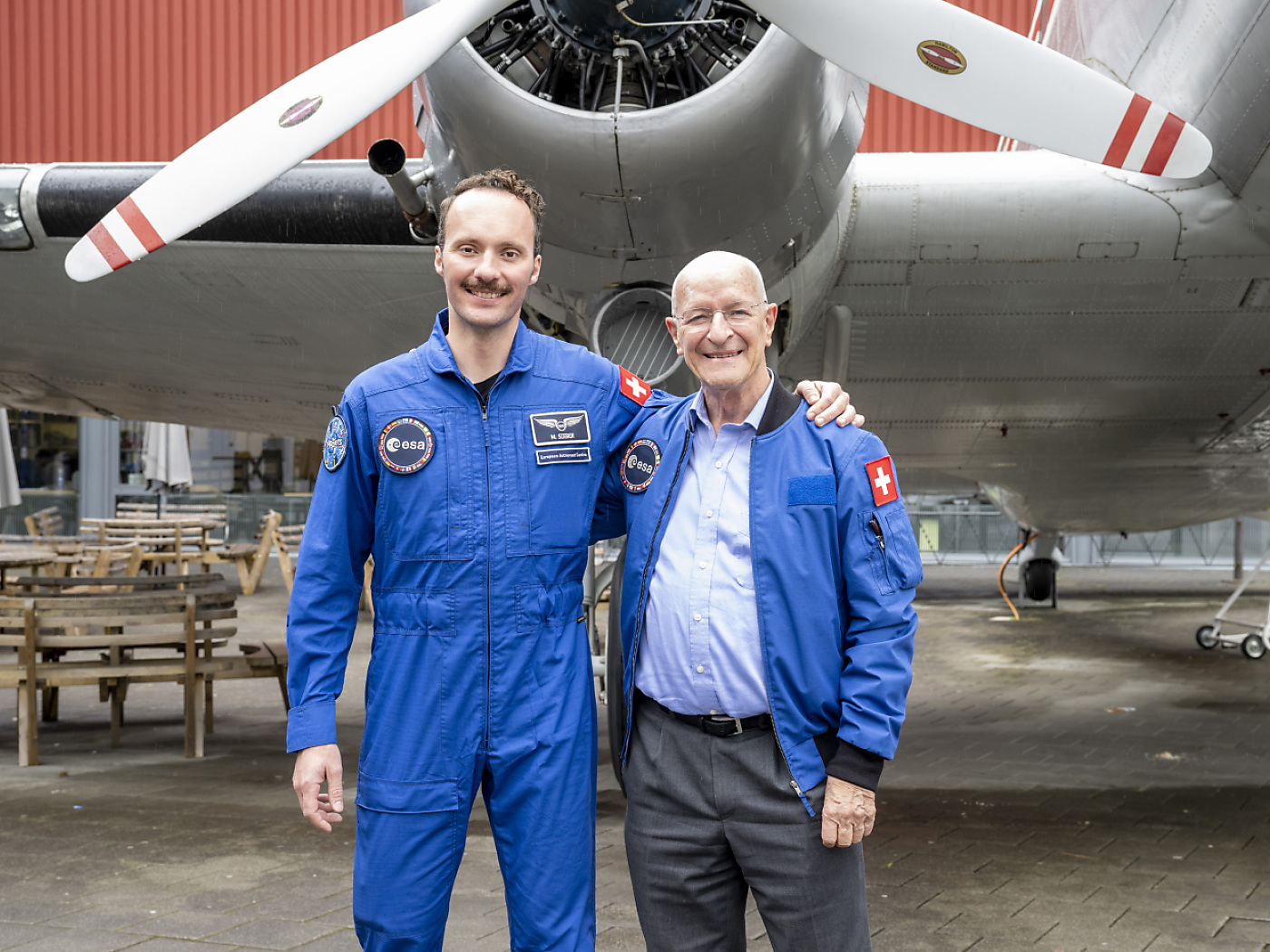
Switzerland’s first astronaut turns 80

Switzerland's first astronaut, Claude Nicollier, celebrates his 80th birthday on Monday. He's still trying to pass on his passion for space to younger generations.
“The experiences I had as an astronaut were incredibly profound. When you’ve experienced something so extraordinary, you can’t keep it to yourself,” said Nicollier in an interview with Keystone-SDA.
+ Get the most important news from Switzerland in your inbox
Even today, Nicollier teaches students at the Swiss Federal Institutes of Technology in Lausanne and Zurich, as well as new astronauts from the European Space Agency (ESA). Among them is Swiss Marco Sieber, who will follow in his footsteps in the coming years and become the second Swiss to go into space.
Indelible images of space
Nicollier spent around 1,000 hours in space on various missions. “I still have vivid images of it in my head,” says the former astronaut: “You can certainly look at photos or videos, but it’s not the same as experiencing it yourself”.
He particularly remembers his encounter with the Hubble Space Telescope: “When I touched the telescope for the first time with my hand, it was a very special feeling”. To repair Hubble, he was the first European astronaut to undertake a successful spacewalk. By the end of the mission, the telescope was working again. Even today, it provides important data for science.
Scars from afar
Seeing the Earth from space had a profound effect on him and changed his worldview. “From space, you can see just how fragile the Earth is. You see the scars that man has left on the planet. Forest fires and deforestation, in particular, are very visible,” he said.
“When I saw this, I had the profound feeling that we must protect this very special planet, because we know it’s the only place we can live for the time being in our solar system,” he added.
It’s certainly possible that humans could live on Mars or other planets for some time in the future, but he doesn’t believe there will ever be any large colonies outside Earth. At least not in the next few decades.
He is “moderately optimistic” about Earth’s future: “At least we’re now aware that something needs to be done. That wasn’t the case 50 years ago”.
“I’d like to have gone to the moon”
Since Claude Nicollier’s commitment to space, space missions have become considerably longer. “My missions have always been short. Usually ten to twelve days. And they were full of hard work,” he explained.
On the International Space Station (ISS), where missions generally last six months, it’s a different story: “I would have liked to stay longer in space, not only to enjoy the view, but also to discover what it’s like to live in this environment for a long time.” His successor will have that opportunity.
“I would have loved to have gone to the Moon. But there was no lunar mission when I was an active astronaut.” he said with regret.
An unattainable dream
For a long time, the dream of becoming an astronaut seemed unrealistic. “At the time, space was shared between the Soviets and the Americans,” Nicollier explained. Instead, he studied astronomy and physics, trained as a military and civilian pilot, and eventually took up a position at the ESA’s research and technology center in the Netherlands.
When the opportunity to become an astronaut was first opened up to the Swiss, he jumped at the chance and applied to ESA. He was part of the first training group, and left for the United States in 1980 to train as a mission specialist on the Space Shuttle. Between 1992 and 1999, he made four flights on four different space shuttles.
Adapted from French by DeepL/ac
This news story has been written and carefully fact-checked by an external editorial team. At SWI swissinfo.ch we select the most relevant news for an international audience and use automatic translation tools such as DeepL to translate it into English. Providing you with automatically translated news gives us the time to write more in-depth articles.
If you want to know more about how we work, have a look here, if you want to learn more about how we use technology, click here, and if you have feedback on this news story please write to english@swissinfo.ch.

In compliance with the JTI standards
More: SWI swissinfo.ch certified by the Journalism Trust Initiative




























You can find an overview of ongoing debates with our journalists here . Please join us!
If you want to start a conversation about a topic raised in this article or want to report factual errors, email us at english@swissinfo.ch.